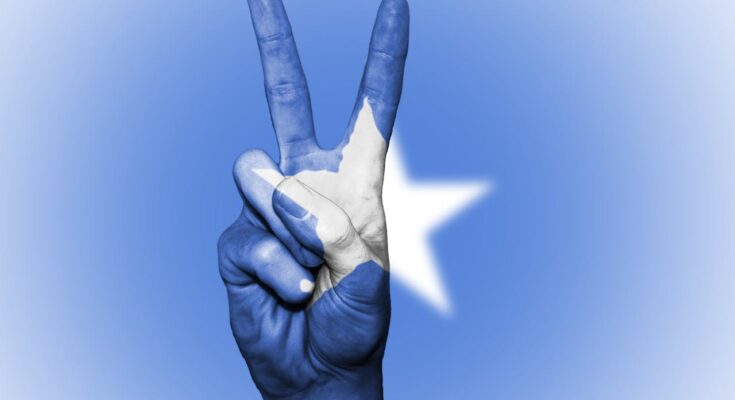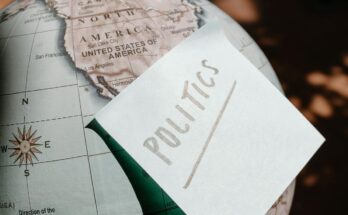Introduction Somalia’s political structure, especially during the whole period of civil conflict, clan politics, and government stability attempt over decades, based around the Horn of Africa, is apparently complex. Since 1991, Somalia has made helpful efforts to establish a functional federal system with a clear distinction of power among the central government and regional states. But even with this, the political arrangement within Somalia is still dominated by clan dynamics, security issues, and International involvement.
Historical Background Somalia gained independence in 1960, merging British Somaliland and Italian Somaliland to form the Somali Republic. A democratic government, although later broken down, was established. A military coup in 1969 saw dictator Siad Barre seize power and rule Somalia as a socialist authoritarian state until 1991. The collapse of his regime ushered in internecine conflict, filling the power vacuum and disbanding state establishments. Since then, Somalia has heard of various transitional governments; however, the last of them sought to put up a federal system.
Somalia is the Federal Government. The Somali Federal Constitution was adopted in 2012 and establishes a federal prototype system of governance in which power is divided between a rather central authority and a set of autonomous regional states. Basic features of the Somali political organization are:
1. Federal Government of Somalia (FGS)The FGS is the main authority in Mogadishu, Somalia. The President is the Head of State, and the Prime Minister is the Head of Government. Other powers assigned to the FGS relate to devising national policy in defence and foreign relations, yet this authority is frequently dictated by the greater regional workings and the most crucial area of security.
2.The Federal Member States– Somalia is divided into several Federal Member States, each with its government and autonomy in local affairs, including Puntland, Jubaland, South West State, Hirshabelle, and Galmudug, whereas Somaliland is claiming secession since 1991. These federal states are responsible for governance at the regional level and have an obligation to work in coalition with the FGS within a power-sharing framework.
3.The legislative branch consists of two houses, the House of the People (lower house) and the Upper House. The members of the House of the People are elected according to clan quotas, whereas the representatives of the Federal Member States make up the Upper House. Together, these two houses make and amend laws and approve budgets and policies.
4. Judiciary: Incorporated are the judiciary courts of Somalia, which are strictly independent with some limits imposed on their decisions that are imposed by political decisions and problems of security. The institution of judiciary consists of a Supreme Court with regional and other lower federal courts. In some districts, traditional courts and Sharia courts are also in functioning and ruling in practice.
Clan-Based Politics and Power-Sharing Clan identity does play a significant role in the political organization in Somalia. The formula of 4.5 divides representation along clan membership, whereby the four major clans share that representation equally, while the minor clans band together for half that. Such a formula has been applied in parliament and other forms of governance in order to prevent a clan from becoming too powerful. However, clan-based politics can sometimes be fruitful in manipulation where it gives rise to competition amongst clans and factions that, regrettably, will never contribute positively to the process of nation-building in Somalia.
The role of international involvement-since 1990s, international community’s involvement in peacekeeping, humanitarian aid, and state-building was in Somalia. The African Union Mission in Somalia-Was formed in 2007-Deployed forces against Al-Shabaab and secured regions of strategic importance. Since then, both the United Nations along with countries such as Turkey, and the United States have offered their assistance to stabilize Somalia financially, politically, and diplomatically. However, dependency on external funding has raised serious concerns over sovereignty and sustainability.
Challenges Facing Somalia’s Political Organization
Security and Al-Shabaab: Al-Shabaab, linked to Al-Qaeda, has continued to present a formidable threat. More specifically, the group has continued to claim to have control of some parts of southern and central Somalia, and attacked government, civilians, and international peacekeepers. Due to these security challenges, the FGS is assisted in governance and control of territory.
Limited Central Authority: Central authority of the FGS had its continued and, therefore, is concentrated in Mogadishu, whereas regional states hold almost independent powers. This has made coordination between the FGS and the FMS extremely complicated, giving rise to many political squabbles and constant delays in the implementation of policies at the national level.
Humanitarian and Economic Challenges: Somalia faces a series of humanitarian crises, such as food insecurity, drought, and poverty, to add burden and pressure on governance. The government has limited opportunities in the provision of basic service and development support because of economic instability and concomitant lack of resources.
Election System and Democratic Processes:, Somalia’s political system is under transition towards direct voting methods. Such elections have been held, however, based on indirect means, depending on the manner of Clan elders’ intervention. Such indirect voting approaches gave rise to tensions around the very onset of a transparent democratic system setting.Setback during recent elections was the presence of political discord, delays, and above all, corruption allegations.
Steps Toward Stability and Reform Somalia has progressed toward the reconstruction of its political organization, despite the fecund challenges met. The hope for tomorrow lies in the national efforts directed at federalism development, improvement of security, and democratic institutionalization. Exchanging possible Islamic donations for political bargaining related to electoral processes is now out of door on the table in collaboration with MFS and concerns of international support for the electoral reforms.
Conclusion
Touched with all these factors, the political organization of Somalia presents a complex intertwining of federalism, clan-based power-sharing, and sticking to the weak structures of state. The war-torn conflicts and draws from the operational challenges have complicated the lives of Somalia’s citizens; it continues to nurture dreams for them to establish a peaceful, inclusive government. The next steps call for the determination of some cordon of arrangements in regard to the input of security questions, establishing firm institutions and solidarity to make the wheel of progress and peace permanent.

